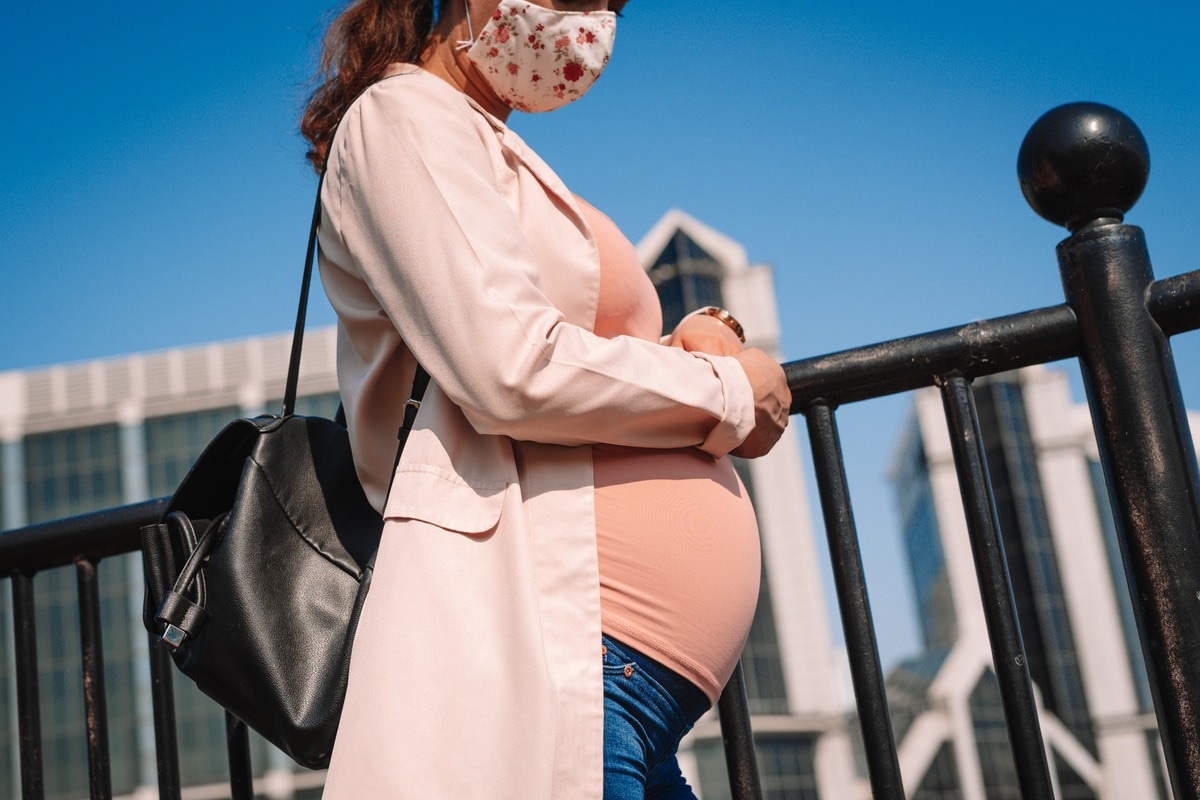The ongoing coronavirus disease 2019 (COVID-19) pandemic has caused major disruptions to many aspects of life, especially in healthcare.
Restrictions and safety measures introduced in response to the pandemic had a substantial impact on childbirth, with many mothers giving birth without the presence of family or friends and then being isolated from their babies.
 Study: Traumatic childbirth during COVID-19 triggers maternal psychological growth and in turn better mother-infant bonding. Image Credit: Corpii/Shutterstock
Study: Traumatic childbirth during COVID-19 triggers maternal psychological growth and in turn better mother-infant bonding. Image Credit: Corpii/Shutterstock
Background
According to salutogenic theory, adverse experiences can result in an individual thriving. However, the opposite has been mainly reported for postpartum individuals during the current pandemic.
Posttraumatic growth (PTG) is the term used to describe a person’s positive outlook on highly stressful events. In the pre-pandemic era, PTG was reported in a large proportion of women following childbirth.
A new study
In a recent study published in the Journal of Affective Disorders, childbirth-related post-traumatic stress disorder (PTSD) was examined in a cohort of women during the COVID-19 pandemic in the United States.
The authors investigated if PTG is related to acute stress in childbirth, whether PTG is related to improved mother-infant bonding and decreased posttraumatic stress symptoms, and whether this process is increased when giving birth during the COVID-19 pandemic.
Methodology
The authors conducted a survey to assess the effect of COVID-19 on maternal wellbeing throughout the pandemic. Among the participants who met inclusion and exclusion criteria and supplied data on acute stress in reaction to recent childbirth, 2,205 people gave birth after the beginning of the pandemic, while 544 participants did so before the pandemic. Participants in the entire sample were, on average, 31.98 years old and 2.23 months postpartum.
The Posttraumatic Growth Inventory-Expanded (PTGI-X) was utilized to measure the psychological growth of the participants. This measure uses a scale from 0 to 5, to assess the positive changes in relationships with others, new possibilities, inner strength, and appreciation of life that happened because of a specific stressful experience.
The authors utilized a variety of measures to assess the participant’s response to the adverse events of childbirth and early motherhood, such as the Posttraumatic Growth Inventory-Expanded (PTGI-X), Peritraumatic Distress Inventory (PDI), posttraumatic stress disorder symptoms about childbirth (CB-PTSD), and the Maternal Attachment Inventory (MAI).
Study findings
A slight degree of growth was reported in 34.1% of the participants and more substantial growth was reported in 36.35% of participants, all because of childbirth. The participants reported supporting appreciation for life (63.8%), personal strength (54.1%), relating to others (48.1%), new possibilities (36.5%), and spiritual and existential change (24.2%).
The multigroup mediation model identified substantial changes in the mechanisms linking postpartum acute stress response to CB-PTSD, mother-infant bonding, and nursing via an elevation in PTG in women who gave birth before and during the pandemic. Specifically, childbirth-related acute stress was associated with higher PTG only if giving delivery during the COVID-19 pandemic but not prior.
The degree of CB-PTSD symptoms was then related to PTG, but only if it was delivered during the COVID-19 pandemic. PTG was also linked, in both instances, to stronger mother-infant bonds. Thus, the model showed that the indirect pathways from childbirth-related acute stress to CB-PTSD and mother-infant bonding via PTG were statistically significant only during the pandemic.
Implications
The PTG phenomenon broadens the paradigm of postpartum psychological adjustment in mothers and brings a fresh viewpoint to the research of the outcome of childbirth. The findings of this study demonstrate that, despite the COVID-19 pandemic, a sizable proportion of postpartum women experienced psychological growth as a result of giving birth, most notably in the form of a stronger appreciation for life and personal strength.
These results demonstrate a relationship between favorable postpartum outcomes and maternal perceptions of good psychological changes brought on by childbirth. For women who have a traumatic experience in childbirth, the development of maternal growth may have significant advantages. After a traumatic birth, interventions focusing on the psychological development of the mother are advised.